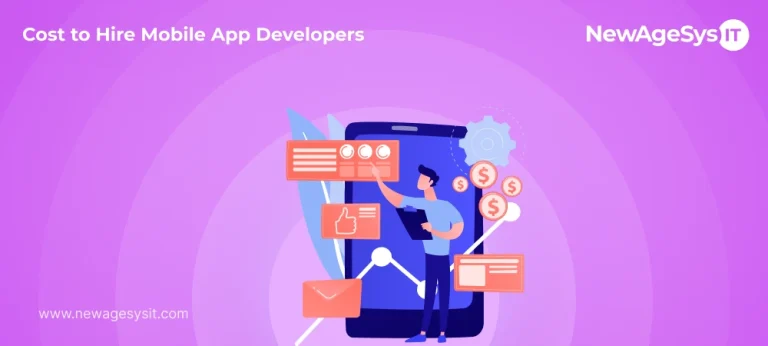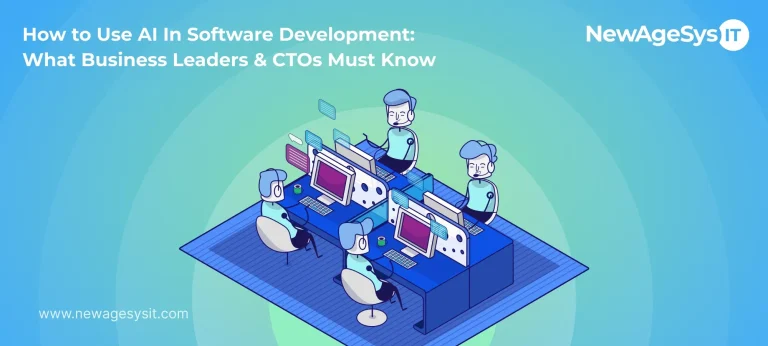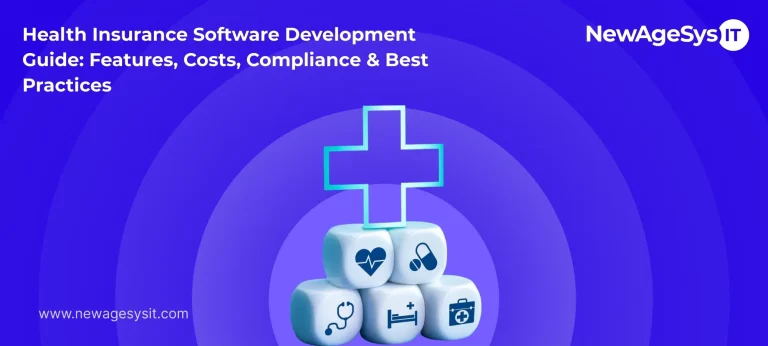Benefits of Cross-Platform App Development for Businesses
As the landscape of app development advances, businesses encounter the difficulty of creating applications that are compatible with diverse platforms. It is where cross-platform app development framework marks the line. It is undoubtedly a popular software development trend. This blog delves into how Cross-Platform Application Development benefits your business and the best frameworks you can use.

Complete Guide to Cross-Platform App Development for Businesses
Cross-platform application development is a multi-platform approach where a single mobile application runs smoothly on different operating systems. App developers can build and deploy mobile apps that work on Android and iOS without re-coding them for each platform.
What stands out in cross-platform app development is that some or even all source code can be shared. It also enables developers to broaden their audience using just one codebase, speeding up the development process and ensuring consistent user experiences across various devices. It enhances efficiency and cost-effectiveness in app development.
The rising popularity of cross-platform app development services among businesses can be attributed to their cost-effectiveness and their capacity to engage a broader audience across various devices and operating systems.
Guide to the process of cross-platform app development for companies
Define Your Goals
Clearly define the purpose of your app. Is it for sales, customer engagement, internal use, or something else? Understand your target audience and their preferences regarding platforms and devices.
Choose the Right Technology
There are popular frameworks like React Native, Flutter, Xamarin, and Nodejs that enable cross-platform development. Research and choose the one that is in line with your app requirements. Ensure the framework supports all the native features you intend to use in your app.
Design User-Friendly UI/UX
Maintain a consistent user experience across different platforms. Create a responsive user interface that adjusts seamlessly to different screen sizes and orientations.
Development and Testing
Programmers can write code just once and then deploy it on various platforms. Rigorous testing is crucial. Emulators can help simulate different devices and operating systems, but real-device testing ensures optimal performance.
Integration of APIs and Backend Services
Integrate APIs carefully, ensuring they work seamlessly across platforms. Implement a robust backend system that supports your app’s requirements, regardless of the platform.
Performance Optimization
Optimize images and other media to reduce loading times. Implement caching strategies to minimize the need for repeated data fetching.
Security Measures
Encrypt sensitive data transmitted between the app and the server. Utilize secure authentication techniques to safeguard user accounts and data.
Updates and Maintenance
Ensure the application is regularly updated to accommodate new operating system versions and incorporate additional features. Address user-reported issues promptly to maintain a positive user experience. We are one of the leading mobile app development companies in USA, catering to clients acroass the globe. Talk to our experts now!
Marketing and Distribution
Optimize your app’s listing on various app stores for higher visibility. Use social media marketing methods and other channels to promote your app.
Post-Launch Support
Provide outstanding customer support to resolve user inquiries and address their concerns effectively. Implement analytics to monitor app performance and user behavior.
By following these steps and staying updated with the latest trends in cross-platform development, businesses can create high-quality apps that cater to a diverse audience while optimizing development costs and efforts.
Key cross-platform App Development Frameworks
React Native
React Native, a widely recognized mobile development framework based on JavaScript. Developed by Facebook, it allows native-style mobile app development for Android and iOS using a unified codebase. It promotes a unified codebase strategy, enabling React Native development companies to create applications for multiple platforms using shared code.
Significant benefits of React Native include consistent app expansion across platforms due to robust components ensuring smooth presentation, efficient code reuse through pre-developed elements, and dynamic features like live and hot reloading. Notable users include Facebook, Instagram, and Tesla.
Flutter
Flutter, developed by Google, is a popular open-source cross-platform app development framework known for its high performance and visually appealing for iOS, Android, and the web.
It uses Dart programming and Skia graphics, enabling rapid development and real-time code changes for efficient app creation. This framework supports both web and desktop applications, enhancing cross-platform capabilities.
Its openness encourages community collaboration. Yet, Flutter’s effectiveness is proven by renowned applications like Alibaba, Google Ads, Tencent, and Reflectly, spanning diverse domains and establishing it as a robust choice for versatile, modern applications.

Tauri
Tauri is a modern cross-platform framework using web technologies for the front end and Rust for the back end. Tauri is adaptable and works well with various front-end libraries such as Vue, React, and Svelte.
Although Rust integration is not mandatory, Tauri provides a JavaScript API, enabling developers to effortlessly convert existing web app code into a native desktop application with minimal adjustments.
NativeScript
NativeScript, introduced by Progress, creates native apps using JavaScript, TypeScript, and Angular. It provides direct access to native platform APIs, ensuring native-like experiences across platforms. NativeScript stands out for enabling rapid market entry, effective product testing, and securing a competitive advantage.
It excels in creating tailored mobile apps and Minimum Viable Products (MVPs). Its key features comprise robust support for Angular, Vue.js, and Svelte stacks, a specialized marketplace, and effortless access to native APIs.
Node.js
Node.js, built on Chrome’s JavaScript runtime, enables consistent app performance across platforms. Node.js, an open-source runtime, empowers JavaScript for both client and server-side scripting through its event-driven, non-blocking I/O model. Its advantages lie in universal JavaScript usage, enhanced code reusability, efficient performance via the V8 engine, and access to a thriving ecosystem and package management.
Best practices involve well-structured code, asynchronous handling, judicious library usage, rigorous testing, performance optimization, security protocols, thorough code reviews, and the implementation of continuous integration/continuous deployment (CI/CD) processes. Companies like Netflix, Linkedin, and Microsoft Office Online use Node.js for cross-platform capabilities.
Xamarin
Developed by Microsoft, Xamarin creates native apps using C# and .NET, ensuring native integration and shared codebase.it is advantageous in utilizing Forms Technology, facilitating the sharing of UI layouts via the .NET cross-platform UI toolkit. This approach streamlines maintenance and allows simultaneous updates for both iOS and Android platforms. Companies like Alaska Airlines, World Bank, and Storyo employ Xamarin.
Electron
Electron, an open-source framework by GitHub, facilitates cross-platform desktop app development using HTML, CSS, and JavaScript. Setting itself apart from its Node. js-based counterparts, Electron combines the advantages of Node.js with the Chromium Engine, effectively integrating server and client-side JavaScript capabilities. Major firms like Microsoft and Slack employ this framework.
Advantages of Cross-Platform Mobile Applications
Cost Efficiency
Electron, an open-source framework by GitHub, facilitates cross-platform desktop app development using HTML, CSS, and JavaScript. Setting itself apart from its Node. js-based counterparts, Electron combines the advantages of Node.js with the Chromium Engine, effectively integrating server and client-side JavaScript capabilities. Major firms like Microsoft and Slack employ this framework.
Code Reusability
Cross-platform frameworks enable a single codebase, ensuring consistency in the business logic applied across platforms. This reusability streamlines development and maintenance processes.
Rapid Development
Leveraging code reuse enhances productivity, leading to faster time-to-market. Cross-platform frameworks have optimized app testing procedures, expediting the development phase further.
Simplified Maintenance
Updating a cross-platform app is straightforward due to the utilization of a single codebase. All builds targeting different platforms share the same code, ensuring uniformity and easing the maintenance process.

Features of Cross-Platform App Development
Cross-platform app development frameworks offer a range of features that make them attractive for businesses looking to develop applications for multiple platforms efficiently. Below are some essential features of cross-platform app development:
Access to Native Features:
Ability to access native device features (camera, GPS, accelerometer) using plugins or modules.
Offline Support:
Cross-platform apps can work offline and synchronize data when the device is online.
Third-Party Integrations:
Cross-platform apps can easily integrate with third-party services and APIs for enhanced functionality.
Rapid Prototyping:
Well-suited for rapid prototyping and the creation of Minimum Viable Products (MVPs).
Scalability:
Scalable solutions that can adapt to growing user demands and evolving business needs.
Security:
Cross-platform apps have security features and options for encrypting data transmission and storage.
Hybrid App Support:
It can build native-like applications and hybrid apps that run inside a web view.
Cloud Integration:
It can also seamlessly integrate with cloud services for storage, analytics, and other functions.
Support for Multiple OS Versions:
Compatibility with various versions of operating systems, ensuring a broader user base.
Considering these features, businesses can leverage cross-platform app development to create versatile, high-quality applications that cater to a diverse audience while optimizing development resources.
How NewAgeSysIT Can Help You

NewAgeSysIT is the leading app development company in USA offering services that can streamline your business needs. With years of expertise, we offer Cross-platform app development services where you can build an app that runs smoothly on multiple operating systems.
From development and testing to deployment, our experts confirm that the highest quality is maintained throughout the process. If you need to build an app that runs smoothly on multiple platforms, NewAgeSysIT can be your perfect partner. Head over to our case studies and testimonials to see how our clients shaped a better future with our mobile cross-platform development services.
























